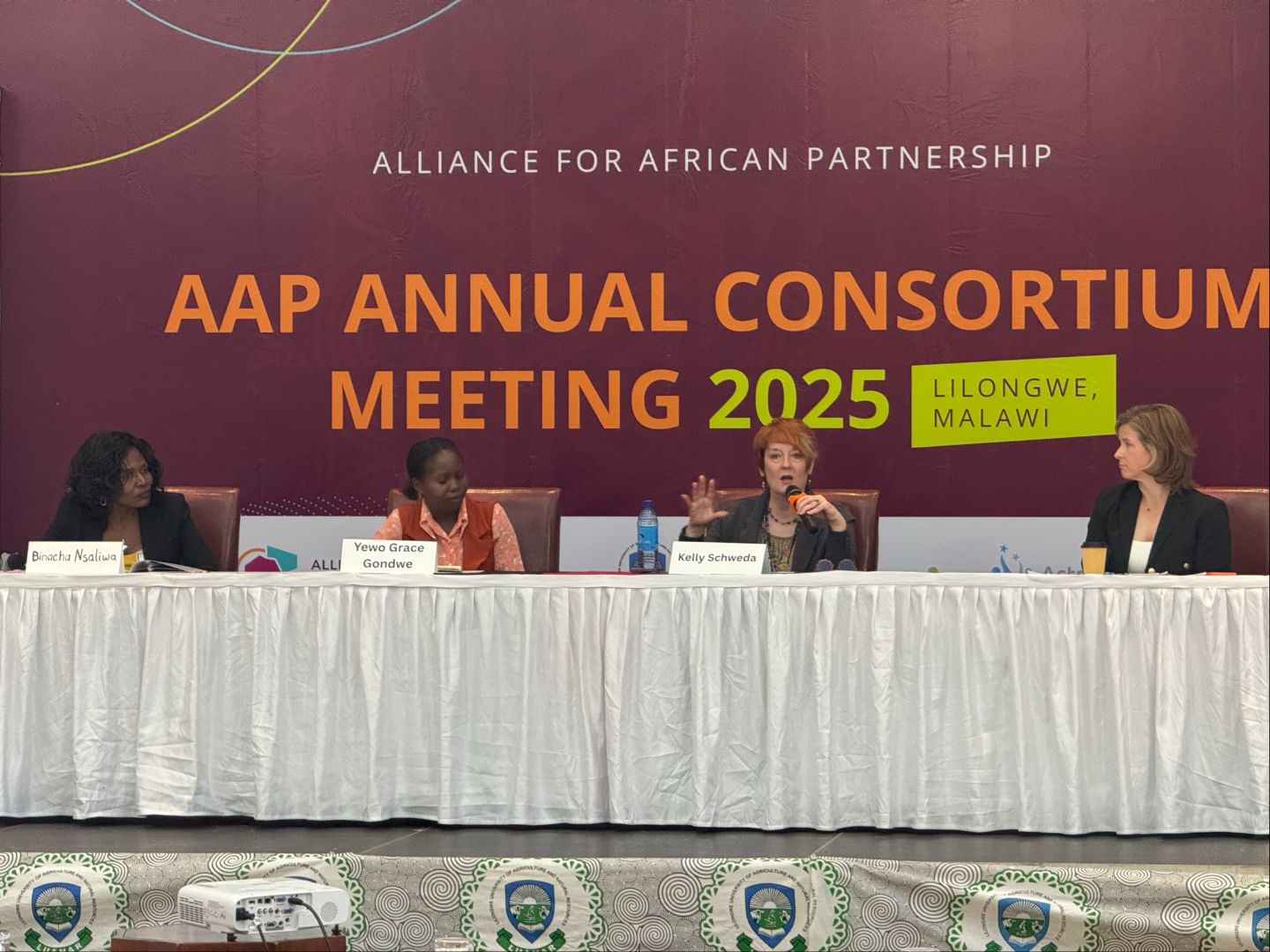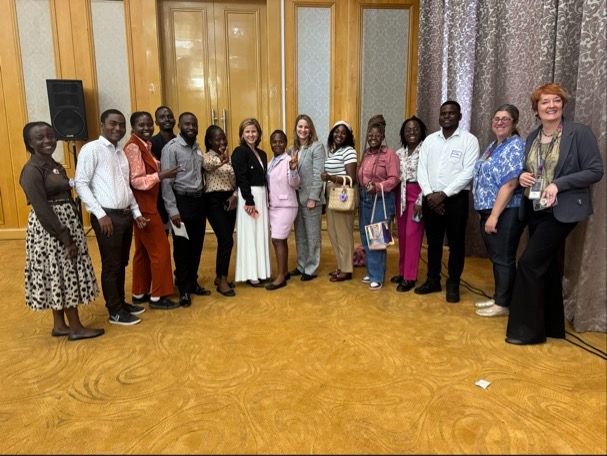
A delegation of GenCen affiliates recently attended the 2025 Alliance for African Partnership (AAP) Consortium Meetings in Lilongwe, Malawi, strengthening research and outreach collaborations with AAP partner institutions. AAP is a consortium between Michigan State University (MSU), ten leading African universities, and a distinguished research network of African institutes. Bringing together vice chancellors, academic leaders, researchers, communication specialists, and key stakeholders from across Africa, the annual meeting serves as a critical platform for shaping collaborative solutions to the continent’s most pressing challenges.
This was the second year that focal point representatives, gender center directors, and faculty and staff involved in gender-related programs across the AAP network convened at the AAP meetings. Soma Chaudhuri (GenCen) highlighted several key GenCen research projects and led a discussion on potential ways to strengthen external grant collaborations between AAP institutions and MSU.
Several GenCen affiliates—Katie Gregory (Department of Psychology, Research Consortium on Gender-Based Violence [RCGV]), Heather McCauley (School of Social Work), Laura Rugless (Office of Civil Rights and Title IX Education and Compliance), and Kelly Schweda (Prevention, Outreach and Education)—attended the meetings as a starting point for networking, strategy-building, and grant development. Their participation was supported by Strategic Partnership Grants (SPGs) in collaboration with the School of Social Work, Department of Psychology, RCGV, and the Office of Civil Rights and Title IX at MSU. Representatives from LUANAR, University of Nigeria Nsuka, University of Bamako (Mali), Swedish University of Agricultural Sciences, and Makerere University also joined the session.
Meeting attendees identified priority areas for collaboration and proposed next steps, including sharing opportunities through AAP focal points to connect institutional leaders. Building on insights from the 2024 and 2025 Consortium Meetings, the MSU team is now developing several grant proposals for the upcoming academic year.

LUANAR’s Gender Coordination Unit also hosted GenCen affiliates on campus to establish further collaborative ties. In attendance were faculty and staff from LUANAR’s Gender Coordination Unit and the Department of Human Ecology, including Elizabeth Nkhonjera, Taskowa Kakota, Yananda Madhlopa, Judith Francesca Kamoto, Jessica Kampanje-Phiri, and Sharon Gwedeza.
The group discussed strategies for raising awareness of gender programs and events; MSU resources that could support LUANAR’s unit; and joint programs that advance peer education, provide mental health support for survivors, involve men in prevention efforts, and address challenges related to campus sexual violence.

A full-day event focused on leadership and the prevention and investigation of gender-based violence (GBV) was also organized by a select group of GenCen affiliates at the AAP meetings. Led by Laura Rugless (Vice President for Civil Rights and Title IX Education), Kelly Schweda (Executive Director of Prevention, Outreach and Education), and Amy Jamison (Co-Director of AAP), in collaboration with faculty at LUANAR, Makerere University and University of Nigeria Nsukka, each panel highlighted a specific theme and featured experts selected based on their submitted materials and demonstrated expertise. Topics included Policy and Leadership, Investigation and Support, and Prevention Education.
According to AAP, the panels emphasized the role of traditional and faith leaders in shifting harmful social norms, the impact of youth-led advocacy on campus responses to GBV, and the importance of cross-sector collaboration and mental health investment. Using MSU’s comprehensive approach—centering survivor care, policy reform, and community-wide prevention—as a framework, the discussions highlighted the need for institutional accountability in creating safer, more inclusive campuses.
Audience members actively engaged with panelists during and after each session, fostering new ideas and potential collaborations. Whether faculty, staff, or students, attendees gained valuable insights from experts across a range of institutions and community organizations. These conversations contribute to an ongoing, global effort to develop a universal toolkit for institutional GBV prevention, investigation, and response.
Overall, the 2025 AAP Consortium Meeting reinforced the value of international collaboration and positioned MSU as a global leader in gender-focused research, prevention, and community engagement. As GenCen continues building cross-continental partnerships, the conversations in Malawi will help shape the next wave of collaborative research and violence prevention efforts—on campus and beyond.